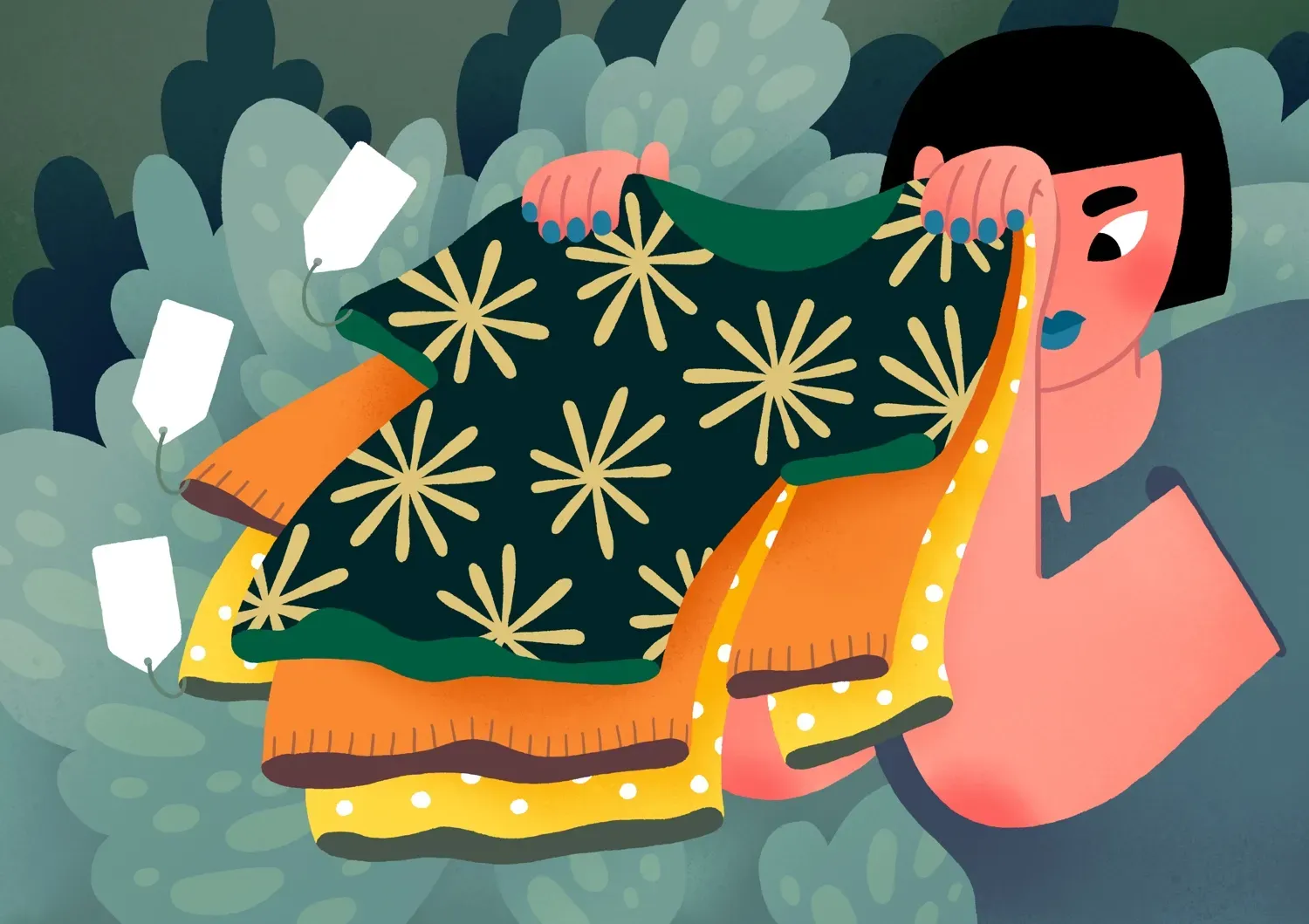Is thrifting really the answer to fast fashion woes?

Thrifting has taken on a fresh new look as Gen Zs lead the movement to give secondhand clothing a new life. In fact, characterised by their desire to stray from societal norms, the peculiarities of vintage, Y2K vibes just seem like the natural answer for Gen Zs.
The youths are, however, not only just thrifting - their choices are shaping consumption habits, and entrepreneurs from this generation are starting their very own thrift businesses. It’s official: secondhand clothes are cool again.
Why thrifting has taken off in recent years is in part due to the parallel shift towards sustainable consumption; the fast fashion industry is the second largest consumer industry of water, and about 35% of all microplastics in the ocean come from the laundering of synthetic textiles like polyester (source).
The symbiotic relationship between consumers refreshing their wardrobes every now and then, and the businesses churning out new apparel faster than we can say “sustainability” comes with a huge cost on the environment. What’s really the root cause of this problem?
In our latest study, we aimed to understand what Southeast Asian consumers think about secondhand fashion, and how thrifting has affected their overall consumption behaviour of fashion. Is thrifting really the answer to our environmental problems? Read on to find out.
62% of Southeast Asian consumers have shopped for secondhand fashion, coming most from the Philippines
Our survey found that 62% of Southeast Asian consumers have shopped for secondhand fashion - this activity is especially common among FIlipinos, with more than 8 in 10 indicating that they have done so (83%).
Sentiments towards secondhand fashion are overall neutral (48%), leaning slightly towards positive than negative (37% versus 15%). Only in Singapore, however, more feel negative about secondhand fashion than the opposite (28% versus 21%).

Environmental impact is not the top motivator for thrifting, but Singapore shoppers tend to care more about it
For nearly 7 in 10 secondhand fashion shoppers, the reason for doing so is more economic than anything else, indicating that it is because secondhand fashion is cheaper than brand new pieces (69%).
Meanwhile, only 33% say that it is because thrifting is more environmentally friendly. Interestingly, making the choice to purchase secondhand for environmental reasons is more common among those in Singapore (50%) and in fact among the top 3 motivators for doing so.

Is thrifting a means to suppress the guilt of overconsumption?
Shopper’s guilt is real when calls for sustainability are coming from all directions, but it is indeed difficult not to jump on the next wave of fashion trends when fast fashion brands are basically creating a new one every week. Yes, your clothes that are still in the shipping warehouse are past season even before you get to wear them.
We asked secondhand fashion shoppers whether their purchase of secondhand fashion has offset their overall fashion consumption. Since they started thrifting, only 28% said that the number of brand new fashion they bought had decreased.

At the same time, 48% said that the overall number of fashion products they bought had increased. Sounds like a mouthful? In summary, our consumption of fashion products is still increasing, even with thrifting.

Consumers need to be clearer with their intentions for thrifting
Thrift shopping in itself is not the only solution we need to tackle overconsumption. Yes, it may slow down consumption of brand new fashion, but it is only a band aid solution if it can’t get consumers to shake off the habit of chasing trends, lusting over shopping hauls on social media and feeling all too often that a wardrobe refresh is “needed”.
At the same time, consumers need to be careful about blindly accepting green marketing of thrift shops - or any secondhand marketplace platforms - that encourage blind consumerism and attempt to lift consumer’s guilt by labelling all of it as “sustainable”. Consumption is only human nature, but overconsumption? That makes it too convenient for businesses.
Milieu Insight is a leading survey software and market research agency in Singapore, offering comprehensive solutions tailored to the needs of businesses in the local market.

Author
Tan Yan Rong
Latest Insights


.avif)

.webp)

